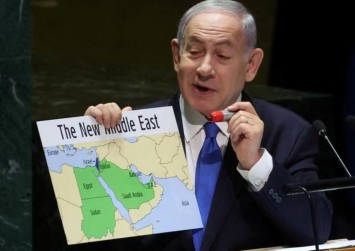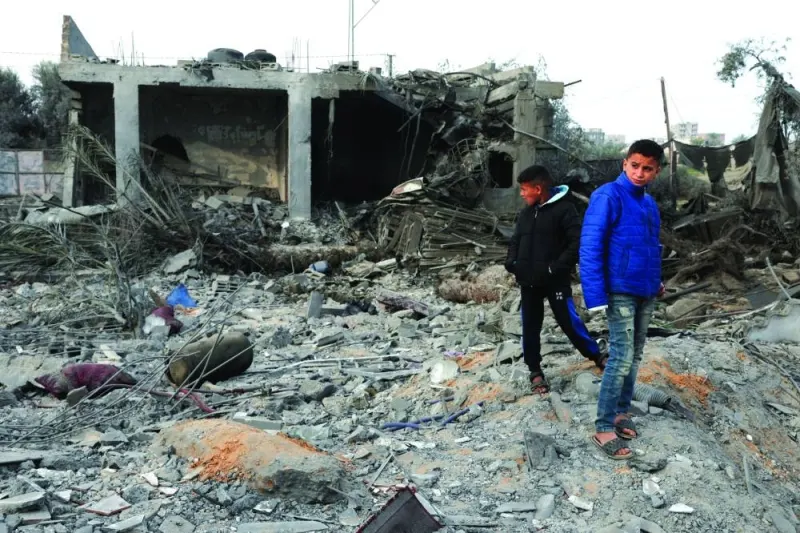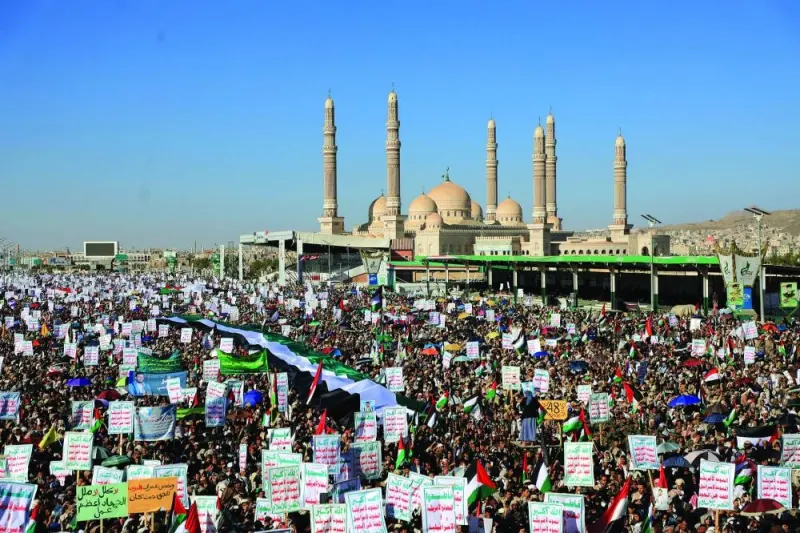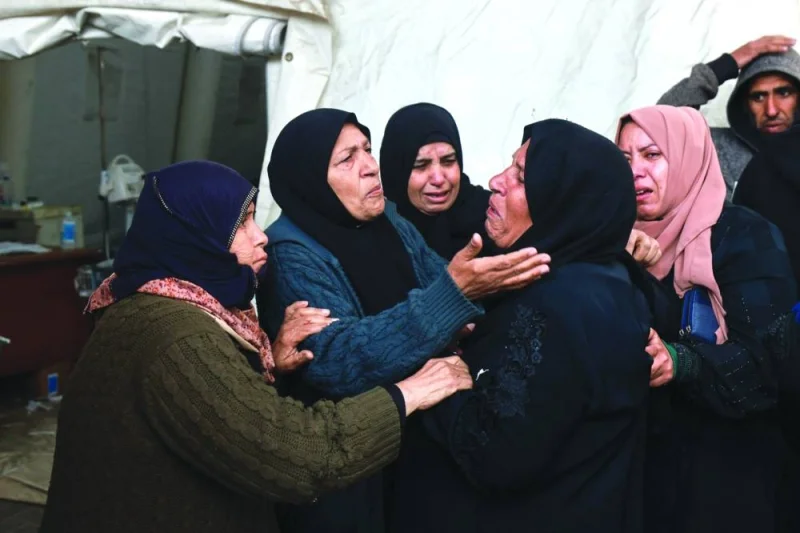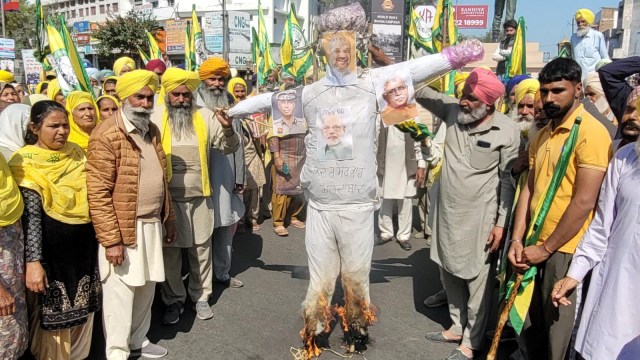COLUMBIA, S.C. (AP) — A South Carolina man was found guilty Friday of killing a Black transgender woman in the nation’s first federal trial over an alleged hate crime based on gender identity.
COLUMBIA, S.C. (AP) — A South Carolina man was found guilty Friday of killing a Black transgender woman in the nation’s first federal trial over an alleged hate crime based on gender identity.
Jurors decided that Daqua Lameek Ritter fatally shot Dime Doe three times Aug. 4, 2019, because of her gender identity. Ritter was also convicted of using a firearm in connection with the crime and obstructing justice.
The four-day trial centered on the secret sexual relationship between Doe and Ritter, who had grown agitated in the weeks preceding the killing by the exposure of their affair in the small town of Allendale, South Carolina, according to witness testimony and text messages obtained by the FBI.
There have been hate crime prosecutions based on gender identity in the past, but none of them reached trial. A Mississippi man received a 49-year prison sentence in 2017 as part of a plea deal after he admitted to killing a 17-year-old transgender woman.
THIS IS A BREAKING NEWS UPDATE. AP’s earlier story follows below.
COLUMBIA, S.C. (AP) — A Black transgender woman and the guy she was secretly dating had just been pulled over in rural South Carolina. Dime Doe, the driver, was worried. She already had points against her license and didn't want another ticket to stop her from getting behind the wheel. Daqua Lameek Ritter, whom she affectionately called “my man," frequently relied on her for rides.
Everything seemed to turn out OK: Doe sent a text message to her mother that afternoon saying she got a $72 ticket but was “alright.”
Hours later, police found her slumped over in the driver's seat of her car, parked in a driveway off a secluded road. Her death on Aug. 4, 2019, is now the subject of the nation’s first federal trial over an alleged hate crime based on gender identity, which started Tuesday.
Much of what transpired in the roughly two-and-a-half hours between the last time Doe was seen and the discovery of her body remains unclear. But as prosecutors wrap up their case this week, more details are emerging about the furtive connection between the 24-year-old Doe — remembered by friends as an outspoken party lover — and Ritter, a man whose distinctive left wrist tattoo is captured in body camera footage from the traffic stop.
Ritter has been charged with a “hate crime for the murder of a transgender woman because of her gender identity,” using a firearm in connection with the hate crime and obstructing justice.
The U.S. Department of Justice alleges that he killed Doe to prevent further exposure of their affair in a small country town where the rumor mill was already churning. Text exchanges between the pair show Ritter tried to dispel gossip of the relationship in the weeks preceding Doe's death. He also tracked the investigation of her killing while coyly answering his main girlfriend's questions in the following days, according to trial testimony.
It was no secret in Allendale, South Carolina — population 8,000 — that Doe had begun her social transition as a woman shortly after graduating high school, her close friends testified. Doe started dressing in skirts, getting her nails done and wearing extensions. She and her friends went out drinking. They discussed boys they were seeing.
One of those boys was Ritter, who traveled from New York to visit family during summertime. Doe and Ritter grew close over the course of those stays, leaving Delasia Green — Ritter's primary girlfriend in the summer of 2019 — with a “gut feeling" that something was up.
Ritter initially told Green that he and Doe were cousins, the girlfriend testified this week. But then she found messages on his phone from an unsaved number that spoke of “getting a room.” She assumed they were from Doe.
When Green confronted Ritter, he became upset and told her that she shouldn't question his sexuality, she said.
Yanna Albany, Doe's cousin, testified that she too had a relationship with Ritter that summer but ended it after about three weeks when Doe told her she was also seeing him. Albany said when she broke up with Ritter, he turned red, threatened to beat Doe for “lying on him" and used a homophobic slur.
Nonetheless, Doe's relationship with Ritter seemed to grow stronger after the entanglement, Albany said. Other friends said Doe never mentioned any drama between the two.
Still, texts obtained by the FBI suggest that Ritter sought to keep their connection under wraps as much as possible. He would remind Doe to delete their communications from her phone, and the majority of the hundreds of texts sent in the month before her death were removed
Shortly before Doe's death, the text messages started getting tense. In a July 29, 2019, message, she complained that Ritter did not reciprocate her generosity. He replied that he thought they had an understanding that she didn't need the “extra stuff.” He also told her that Green had recently insulted him with a homophobic slur. In a July 31 text, Doe said she felt used and that Ritter should never have let his girlfriend find out about them.
Ritter's defense attorneys said the sampling of messages introduced by the prosecution represented only a “snapshot” of their exchanges. They pointed to a July 18 text in which Doe encouraged Ritter, and another exchange where Ritter thanked Doe for one of her many kindnesses.
But witnesses delivered other potentially damning testimony against Ritter.
On the day Doe died, a group of friends saw the defendant ride away in a silver car with tinted windows — a vehicle that Ritter's acquaintance Kordell Jenkins testified he had seen Doe drive previously. When Ritter returned to play cards several hours later, Jenkins said he wore a new outfit and appeared “on edge.” It was a buggy summer day, and the group of four began building a fire in a barrel to smoke out the mosquitoes.
Ritter emptied his book bag into the barrel, Jenkins testified. He said he couldn't see the contents, but assumed they were items Ritter no longer wanted, possibly the clothes he'd worn earlier that day.
Jenkins said that when the two ran into each other the following day, he could see the silver handle of a small firearm sticking out from the waistline of Ritter's pants. He said Ritter asked him to “get it gone.”
Defense attorneys argued it was preposterous to think that Ritter would ask someone he barely knew to dispose of an alleged murder weapon.
But soon after Doe died, Allendale was abuzz with rumors that Ritter had killed her.
Green testified that when he showed up later that week at her cousin's house in Columbia, he was dirty, smelly and couldn't stop pacing. Her cousin’s boyfriend gave Ritter a ride to the bus stop, presumably so he could return to New York. Before he left, Green asked him if he had killed Doe.
“He dropped his head and gave me a little smirk,” Green said.
Ritter monitored the fallout from Doe's death from New York, according to FBI Special Agent Clay Trippi, citing Facebook messages between Ritter and a friend from Allendale, Xavier Pinckney. On Aug. 11, Pinckney told Ritter nobody was “really talking,” which Trippi said he took as a reference to scant cooperation with police.
But by Aug. 14, Pinckney was warning Ritter to stay away from Allendale because he'd been visited by state police. He later said that somebody was “snitching.”
Trippi testified that his sources never again saw Ritter in Allendale for the summers following Doe’s death.
Federal officials charged Pinckney with obstructing justice, saying he provided false and misleading statements.
___
Pollard is a corps member for the Associated Press/Report for America Statehouse News Initiative. Report for America is a nonprofit national service program that places journalists in local newsrooms to report on undercovered issues.
James Pollard, The Associated Press
Video shows Oklahoma nonbinary teen after attack in school bathroom, the day before their death
KEN MILLER, PHILIP MARCELO and JAMIE STENGLE
Updated Fri, February 23, 2024
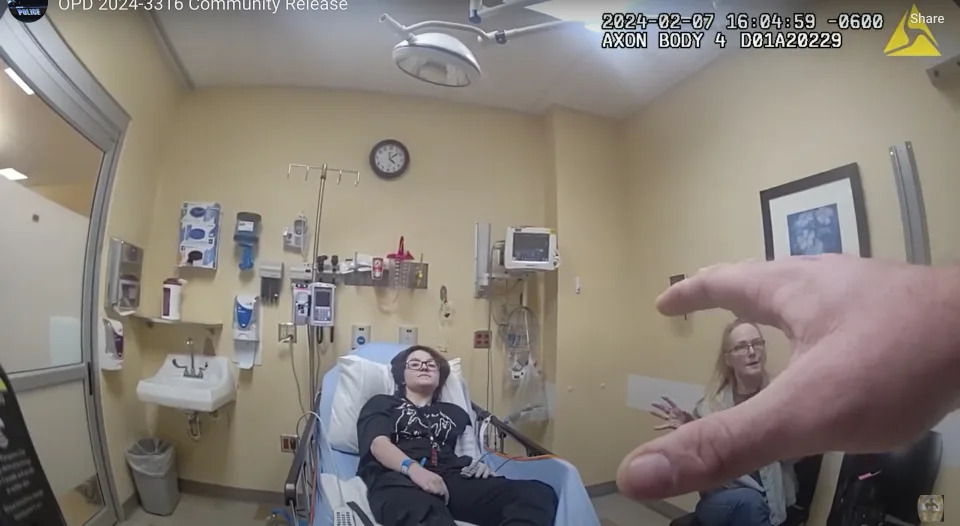
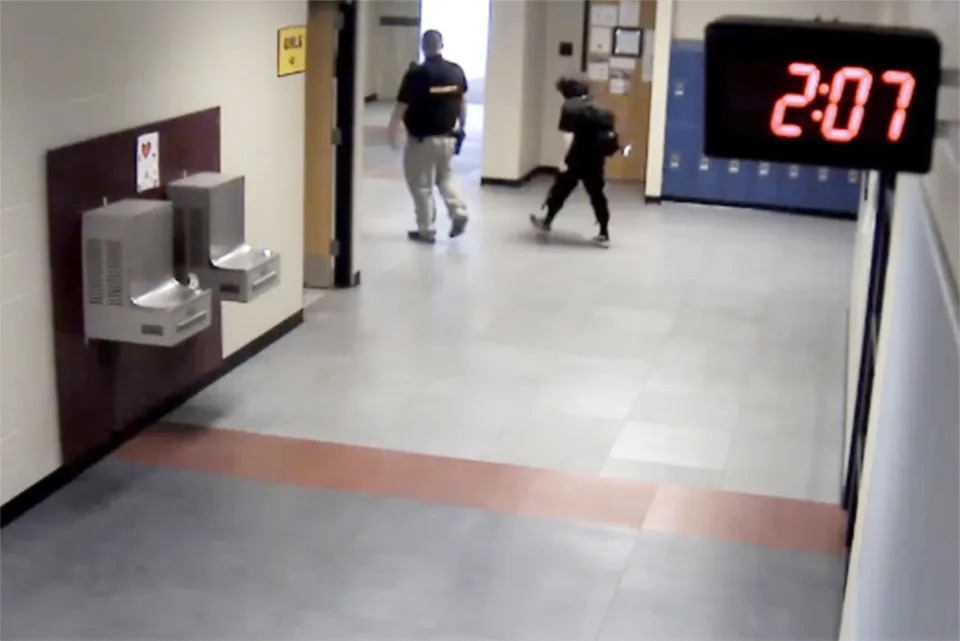

In this image provided Malia Pila, Nex Benedict poses outside the family's home in Owasso, Okla., in December 2023. A recently released police search warrant reveals more details in the case of Nex Benedict, a nonbinary Oklahoma student who died a day after a high school bathroom fight that may have been prompted by bullying over gender identity. (Sue Benedict via AP)
OKLAHOMA CITY (AP) — A 16-year-old Oklahoma student who died the day after a fight in a high school bathroom was conscious and alert when telling police about the attack by three girls that occurred after the teen squirted them with water, according to police video released Friday.
Nex Benedict's mother called police to come to the hospital on Feb. 7 after the teen was attacked at school in the Tulsa suburb of Owasso. Nex, who identified as nonbinary and used they/them pronouns, died the next day after their mother called emergency responders to their home, saying Nex's breathing was shallow, their eyes were rolling back and their hands were curled, according to audio also released by Owasso police.
In the video from the hospital the day of the altercation, Nex explains to an officer that the girls had been picking on them and their friends because of the way they dressed. Nex claims that in the bathroom the girls said “something like: why do they laugh like that," referring to Nex and their friends.
"And so I went up there and I poured water on them, and then all three of them came at me,” Nex tells the officer while reclining in a hospital bed.
“They came at me. They grabbed on my hair. I grabbed onto them. I threw one of them into a paper towel dispenser and then they got my legs out from under me and got me on the ground," Nex says in the video, adding that the girls then started beating Nex and they blacked out.
In the 911 call on Feb. 8, Nex's mother, Sue Benedict, expressed concern about a head injury as she described Nex's symptoms.
“I hope this ain't from her head. They were supposed to have checked her out good,” said Benedict, who remained calm during the call and said she had been to nursing school. Benedict said in a statement on a GoFundMe page set up to help cover funeral expenses that the family was still learning to use the teen’s preferred name and pronouns.
Paramedics responding to the family’s house performed CPR and rushed Nex to the hospital, where they later died.
In audio of the call Benedict made to police on Feb. 7, Benedict said she wanted an officer to come so she could file charges. The officer who responded can be heard in the hospital video explaining that Nex started the altercation by throwing the water and the court would view it as a mutual fight.
According to a police search warrant, Benedict indicated to police on Feb. 7 that she didn’t want to file charges at that time. Benedict instead asked police to speak to school officials about issues on campus among students.
The Feb. 9 search warrant, which was filed with the court on Feb. 21, also shows investigators took 137 photographs at the school, including inside the girl’s bathroom where the fight occurred. They additionally collected two swabs of stains from the bathroom and retrieved records and documents of the students involved in the altercation.
While the two-week-old warrant states that police were seeking evidence in a felony murder, the department has since said Benedict’s death was not a result of injuries suffered in the fight, based on the preliminary results of the autopsy.
The police department, which didn’t respond to multiple messages sent Friday, has said it won’t comment further on the teen’s cause of death until toxicology and other autopsy results are completed.
Video released by police from the high school on Feb. 7 shows students walking into and then out of a bathroom after stacking chairs on top of tables in a cafeteria. Six students are seen entering the bathroom before Nex, who stops at a water fountain and then enters the bathroom along with two other students. A faculty member is then seen going into the bathroom, and the students walk out.
There is no indication from the footage, which only shows the bathroom door and part of the cafeteria, of what occurred in the bathroom.
The school district has said the students were in the restroom for less than two minutes before the fight was broken up by other students and a staff member. Police and school officials have not said what provoked the fight.
The family, through their lawyer, declined to comment Friday on the search warrant. The attorney did not immediately offer any comment Friday on behalf of the family on the video and audio released. Earlier this week, they said they have launched their own independent investigation into what happened.
Vigils are planned over the weekend in Oklahoma for the teen.
White House press secretary Karine Jean-Pierre said Friday that she was “absolutely heartbroken” over Nex’s death.
“Every young person deserves to feel safe and supported at school,” Jean-Pierre said.
___
Marcelo reported from New York and Stengle reported from Dallas.

